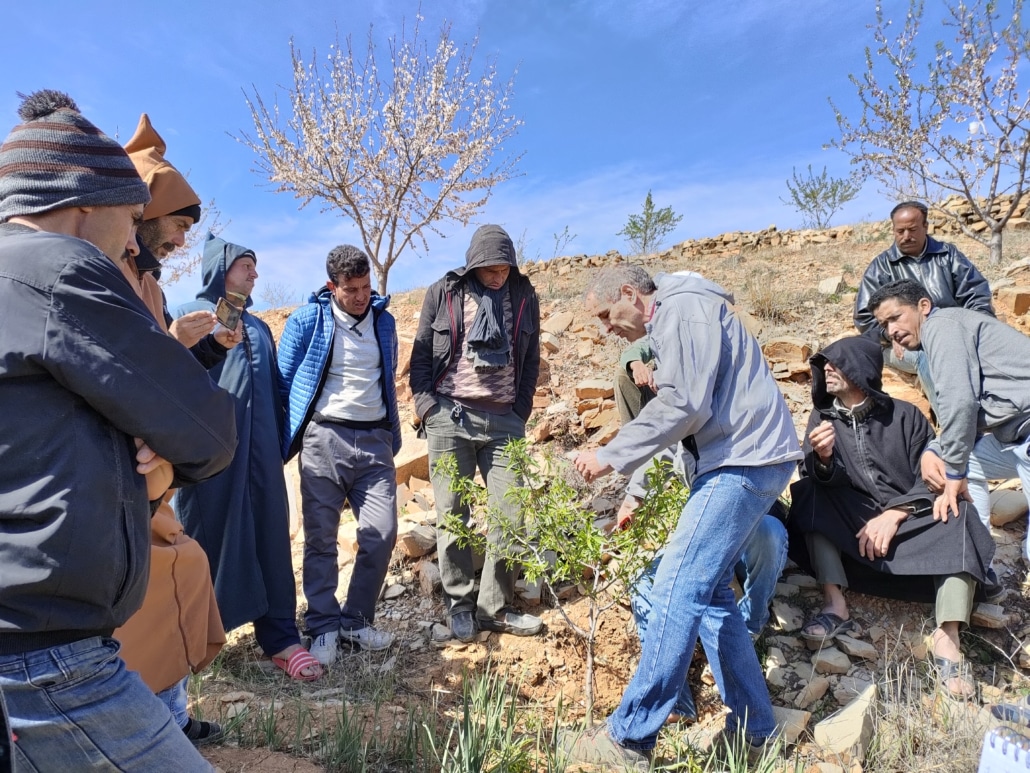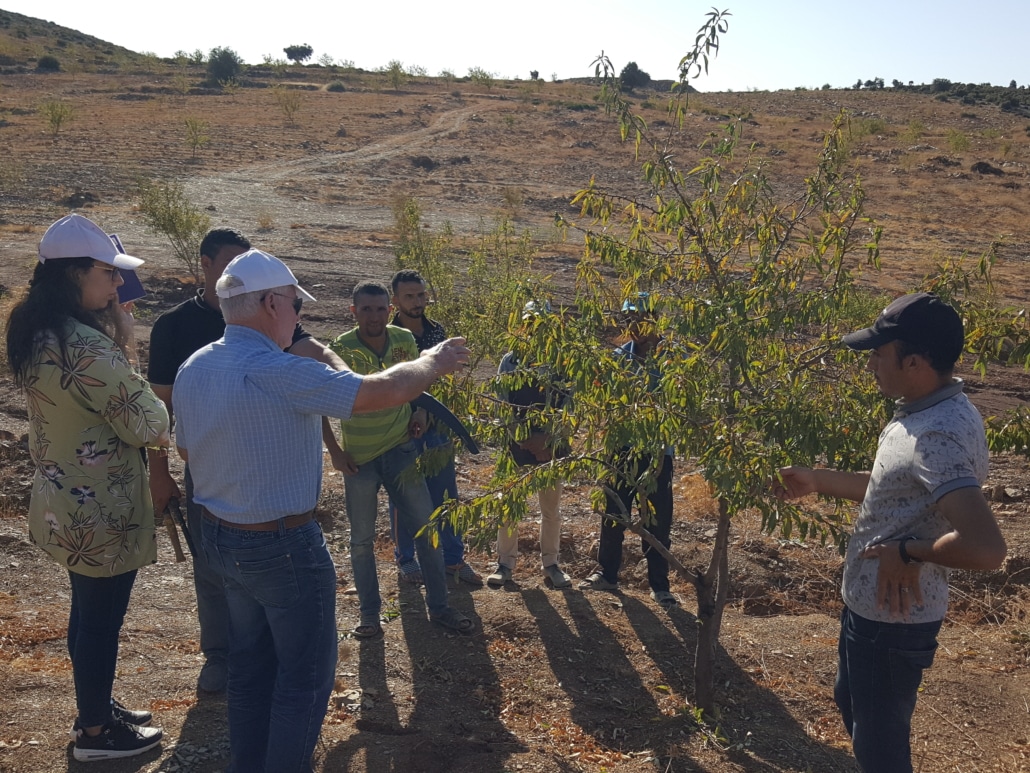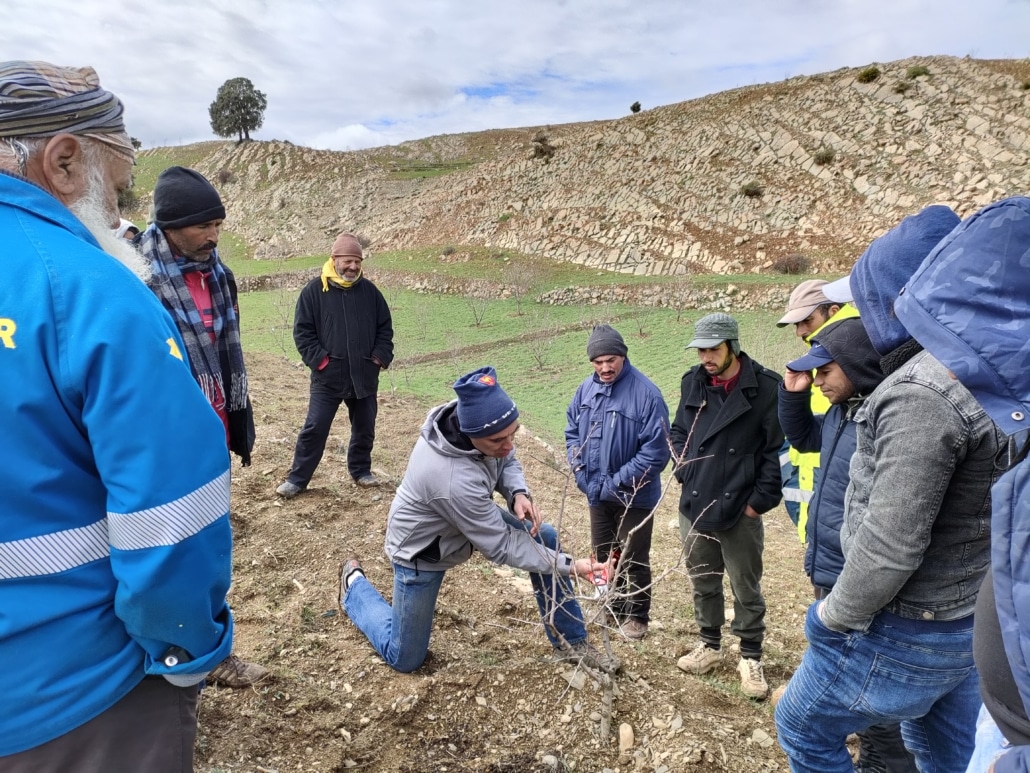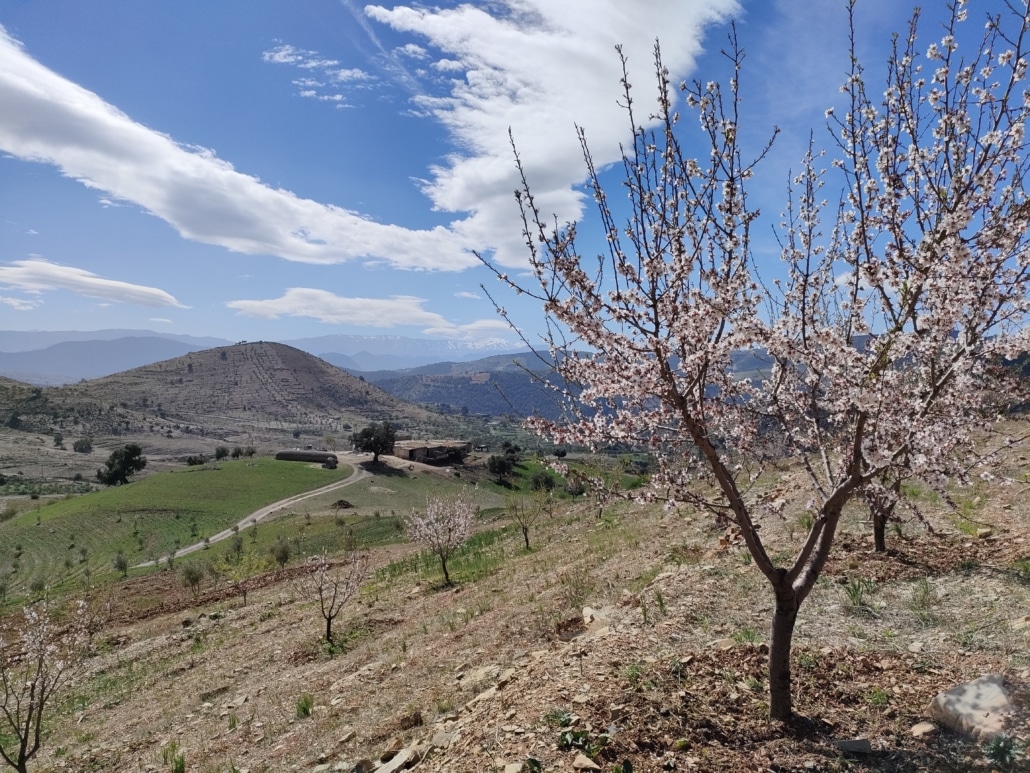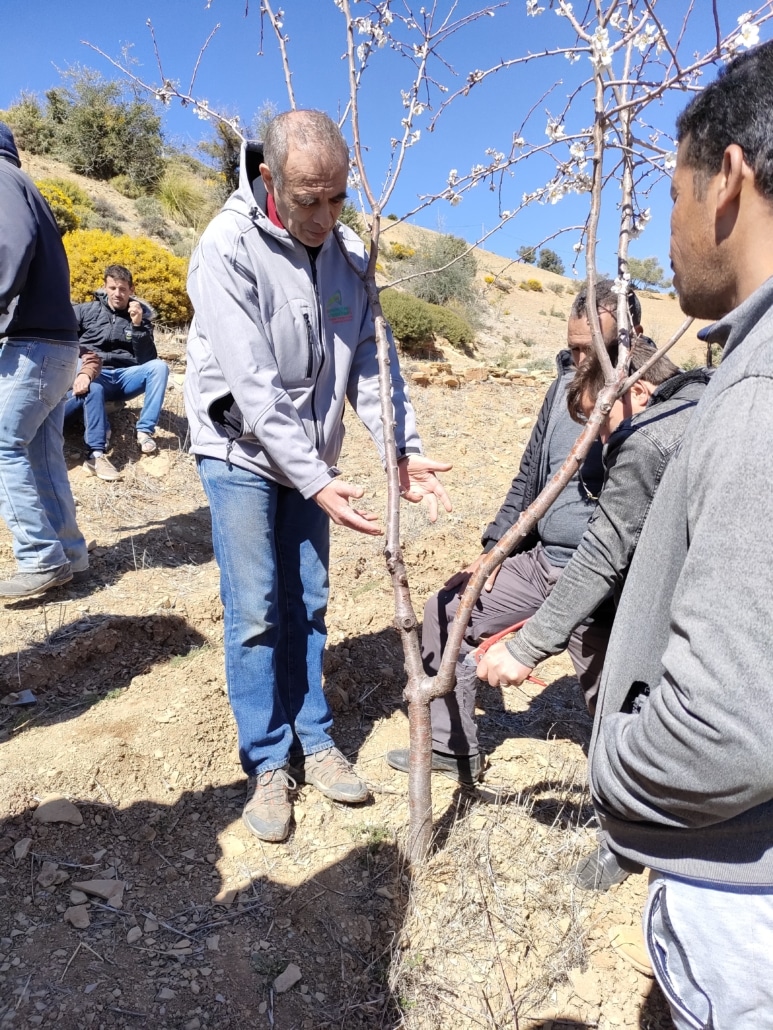Fert initiated in 2021 new activities in the province of Taza, Morocco, offering technical and local support to almond producers in Galdamane and Maghraoua. As the almond tree plantations are recent in these communes of the Middle Atlas, the practice of fruit production is unknown. A local team has been set up to advise farmers on the management and maintenance of their farms.
Context and objectives
In order to complete the technical support proposed to almond producers by the local team, Fert mobilizes professionals from French professional agricultural organizations to share their expertise with technicians and producer organizations. After André Pinatel, retired farmer and former President of the Chamber of Agriculture of PACA, in September 2021, Jean-Michel Montagnon, adviser in fruit production and agroecology of the Chamber of Agriculture of Bouches-du-Rhône, went to meet Moroccan farmers in March 2022. These missions aim to advise Taza producers in the conduct and management of their almond orchards and to contribute to the training of the local team.
Development of an action plan
Jean-Michel Montagnon’s mission made it possible to set up a methodology and tools to optimize the support offered by technicians to farmers. The main idea is to adapt the support to the needs and expectations of the producer. The objectives to do this must first be defined in collaboration with the farmer and the corresponding actions put in place. Jean-Michel Montagnon was able to present tools to the teams to make support more effective and relevant. For example, exchanges between the farmer and his adviser organized around the tool called “the decision-making tool” makes it possible to anticipate and plan the main sites, the possible risks (hail, rain, drought, etc.) and the points to be discussed according to the objectives expressed by the producer.
Discussions with farmers highlighted the following needs:
- Train producers on the technical bases of almond production: how pollination works to better ensure it, tree growth and fruiting to better understand pruning.
- Accompany them in the action: it may be relevant for the technicians to guide the producers during the first pruning of the almond trees in order to set up the process.
- Better understand the economic prospects of almond production to adapt the advice.
Methodology and pedagogy
During the visits to the orchards, Jean-Michel Montagnon was able to show teaching methods to the facilitators in order to provide technical advice to the farmers. The production of almonds in the Taza district being still recent, many technical points must be discussed. Thanks to drawings, diagrams or images, Jean-Michel Montagnon was able to be clear and precise in guiding farmers for the pollination and pruning of their almond trees. For the achievements to be sustainable, the farmer must be able to understand the meaning of the actions and not simply reproduce technical gestures.
The agricultural advisors were able to improve their work and support techniques following this mission. It is now a matter of consolidating training and agricultural advice actions by developing educational activities and again mobilizing technical expertise based on experience.
Exchanges with professional managers from the French Chambers of Agriculture, and in particular the Bouches du Rhône one, may also be organized in order to have farmers testify to the role played by the collective, the agricultural management of the council, etc.
Fert operates in Morocco in collaboration with IECD Morocco.

